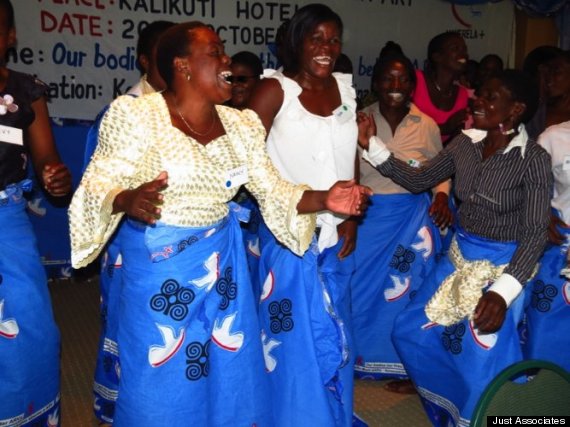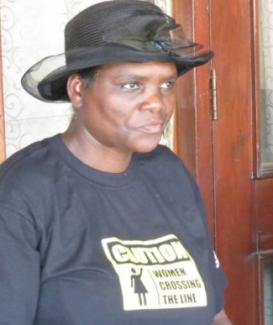In Malawi, the struggle for gender equality and an end to sexual violence has become linked to a public health crisis: HIV/AIDS.
According to a 2013 report by the Malawi government, Malawian women are over one-and-a-half times more likely than their male counterparts to contract HIV — an unequal infection rate, fueled by gender violence and social and economic inequality. Once Malawian women contract HIV, they have limited access to quality antiretroviral medications to manage their infection. The dearth of adequate medical care for these women is a potent form of violence and discrimination — one that HIV positive activist Dorica Maguba is working tirelessly to end.
“This is my body, it belongs to me and I have to take care of it,” says Dorica. These words and her powerful activism represent one of the most radical steps a woman can take, which is realising that the personal is political. They also underscore the essential role grassroots women organizers play in building safer, healthier communities.
In 2010, Dorica started taking D4T, the most-widely available antiretroviral medication at the time. D4T is highly toxic and can cause harmful side effects — particularly in pregnant women — but it was “the only medicine available, and so I had no other choice,” Dorica says.
 In October 2012, Dorica developed new hope after attending the launch of a Campaign for better ARVs, organized by Just Associates and Manerela+. Over two hundred other HIV positive women participated in the event.
In October 2012, Dorica developed new hope after attending the launch of a Campaign for better ARVs, organized by Just Associates and Manerela+. Over two hundred other HIV positive women participated in the event.
“We shared stories. We heard each other’s stories, and that changed my mind-set,” Dorica says. “It helped me to know my own body — the right I have to my own body. It was in that meeting that I started to understand that my body belongs to me.”
After attending additional feminist workshops, Dorica returned home to Malawi’s Mwanza district and demanded new ARVs. She got them.
Now, Mwanza offers better ARV options, but the drugs are still not accessible to all. Dorica is working with other women in her community to change that. Through their local branch of the Coalition of Women Living with HIV and AIDS and Takula, a support group they founded in Mwanza, these women are taking action and demanding their rights.
Like Dorica, HIV positive women across Malawi are calling for change.
In the run-up to the 2014 Malawian election, many took to the streets calling for candidates to increase access to better HIV/AIDS medications. “If you want women’s votes in 2014, put 75 billion on the table for better ARVs,” was scrawled across one protest sign.
The Coalition of Women Living with HIV and AIDS has achieved several key organizing successes. They have set up mobile ARV clinics to reduce women’s travel time and costs, provide land for women to cultivate, offer access to credit and seed coupons, and organize local campaigns to stop violence against women.
“The message I have to fellow women in Malawi: this is time for us to wake up,” Dorica says. “We need to know that we have power within ourselves, that we have rights, and we have to advocate for change that is right for us. Women have power within themselves, but alone, we can’t make big changes. We can come together to do something great.”
This article was written by JASS Southern Africa‘s Maggie Mapondera and initially published on Huffington Post
Interviews by:
Sibongile Singini, MANERELA+
Anna Davies-van Es, Knowledge and Programs Coordinator – Just Associates (South Africa)
This post is part of a series produced by The Huffington Post and the International Campaign to Stop Rape & Gender Violence in Conflict in conjunction with 16 Days of Activism Against Gender Violence. To learn more about global activism to end sexual violence in conflict, visit here. To read all posts in the series, visit here.


























